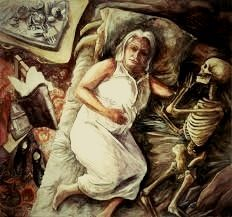Battle Royal, African American Theory
Intro: From the end of the eighteen hundreds to the beginning of the twentieth century, the African American community held notable figures that contributed to society concerning music and arts, civil rights, and politics in America. A figurehead one can look to for these traits is Booker T Washington. He inspired, taught, advocated for African Americans, and left a great legacy. In his works, African American author Ralph Ellison took his perspective on Washington's ideals. He crafted an eye-opening novel that addressed the social issues and conflicts one would face in that period. Ellison develops the narrator in “Battle Royal” to embody the traits of Booker. T Washington's stance on equality for African Americans through concepts like conformity self-suppression, and education.
1st Body: From the beginning of the short story, Ellison introduces the idea of a “go along to get along” ideation. The narrator grandfathers final words stated, “‘Live with your head in the lion’s mouth. I want you to overcome ‘em with yeses, undermine ‘em with grins, agree ‘em to death and destruction, let ‘em swoller you till they vomit or bust wide open.’” (Ellison 335). This leaves the narrator with an inner battle to conform to the white man, counteracting prejudice. This opens up a conversation about internalized racism within the narrator. He feels inferior to his community because he addresses his behavior to the white folks and examines how the interactions made him feel confused. He made it seem as though he was tip-toeing around them, trying to prove himself through his success especially academically. This creates an image of low self-worth within the narrator. The narrator admits that conformity had a significant effect on him and led him to influence his behavior with white folks.
Washington had a similar thought, “Washington felt that Negros could best succeed in America by conforming to the prescriptions of entrenched white authority”.
2nd Body: Self-suppression is a recurring matter in our country's history. It is amazing what comes out of one's unconscious when one guard is down as a result of self-suppression. People do this to avoid Everyday racism, or acts of racism that occur regularly. The narrator's facade falls as he becomes disoriented and misspeaking, “‘What you just said!’ ‘Social responsibility, sir,’ I said. ‘You weren’t being smart, were you, boy?’ he said, not unkindly.‘No, sir!’ ‘You sure that about ‘equality’ was a mistake?’ ‘Oh yes, sir,’ I said. ‘I was swallowing blood’” (Ellison 344). African Americans were thought to have a social responsibility to stay in their lane for lack of a better word, and instead of equality, they found themselves attending all-black colleges, like the narrator was set up to. They had opportunities similar to white people, but not equal to. These private opinions are comparable to Washington's declarations in the sense that, “Recent work indicated that there was a drastic difference between Washington’s public pronouncements and his private activity”. This relates to the narrator in the way that he misspeaks and exposes himself in front of the white men. The narrator has opinions and stances but alternative opinions compared to what the white men think. And due to suppression and ridicule, he cannot share.
3rd Body: Education was a greater conflict in itself for individuals like the narrator and Washington, to different degrees of course. Schools and colleges were places where Environmental racism took place. These places were heavily segregated based on race. Especially for people like Washington, education wasn't the most accessible, being that in his early life, he was a victim of enslavement. Through Washington's ambition, “His stepfather finally gave in to the gentle persuasion of Booker’s mother, and the boy was allowed to attend school in the evenings after he had finished his work in the mine”. This was his first step into his career in education as a professor and founding a university for African Americans. Even without equality, he was able to accomplish this through his, “appetite for learning”, and how, “Booker hungered for schooling even at this very young age”. Success and education didn't come without a price, similar to the narrator. The way the narrator needed to fight to prove himself and his success through his speech was tested by the fight between other boys his age. This was captured as, “I wanted to deliver my speech more than anything else in the world, because I felt that only these men could judge truly my ability, and now this stupid clown was ruining my chances” (Ellison 340). As well as, “‘Gentlemen, see that I did not overpraise the boy. He makes a good speech and some day he’ll lead his people in the proper paths. And I don’t have to tell you that that is important in these days and times. This is a good, smart boy, and so to encourage him in the right direction, in the name of the Board of Education I wish to present him a prize in the form of this …’” (Ellison 344). This is moments before the narrator is gifted a scholarship for a school of all African Americans. Words to point out here is “his people”. This is the clearest form of segregation and inequality. The white man is separating the narrator's education and even success from a white person.

Comments
Post a Comment